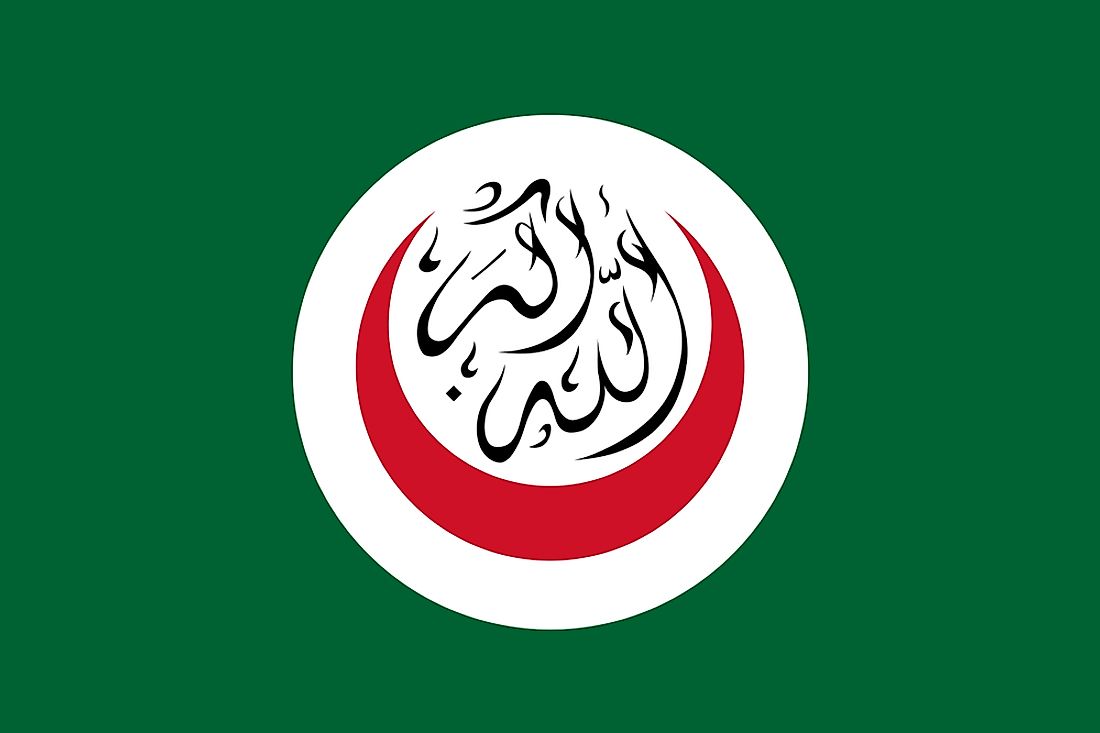What is the Organisation of Islamic Cooperation?

The Organization of Islamic Cooperation (OIC) was founded in 1969 and has 57 countries who are members, representing a population of more than 1.6 billion people as of 2008. The OIC identifies itself as "the collective voice of the Muslim world" whose main aim is to protect and conserve the interests of the Muslim world in the spirit of encouraging peace and harmony internationally. The OIC has permanent delegations to the European Union and the United Nations and has three official languages which are English, Arabic, and French.
What is the Organisation of Islamic Cooperation?
History
The idea of a Muslim community dates back to the 19th century when several Muslims yearned to form ummah (community) to serve their common economic, social, and political interests. Following the downfall of the Caliphate and the Ottoman Empire after the WWI, a vacuum was left for a pan-Islamic institution. The establishment of the Organization of the Islamic Conference was prompted by the al-Aqsa fire in 1972 before the name changed to Organization of Islamic Cooperation. On September 25th, 1969, the Leaders of Muslim states gathered together in Rabat, Morocco to form the OIC.
The Organization's Goals
According to the organization’s charter, the primary aim of OIC is to preserve the social and the economic values of Islam. The organization also aims at promoting solidarity among its member states, to increase cooperation in cultural, scientific, political, social and economic aspects. The emblem of the OIC comprises of three main elements that mirror the organization’s vision as included in the new Charter. The three elements include the Crescent, the Globe, and the Kaaba. On August 5th, 1990, approximately 45 of the organization's foreign ministers ratified the Cairo Declaration on Human Rights in Islam which was to serve as a guidebook for the member states on issues of human rights and their relation to the Quranic and Sharia Law. The Organization of Islamic Cooperation conducted a formal revision of the charter in June of 2008. The revised charter promoted fundamental freedoms, good governance, and human rights in all OIC member states. The revised charter did not include any references to the Cairo Declaration on Human Rights in Islam. However, OIC opted to endorse the International Law together with the Universal Declaration of Human Rights in the revised charter.
The Organization’s New Name and Refugees
During the 38th meeting of the Council of Foreign Ministers (CFM), which took place on June 28th, 2011 in Astana, Kazakhstan, OIC changed its name to the Organization of Islamic Cooperation from the Organization of the Islamic Conference. The organization also changed its logo. UNHCR estimates that approximately 18 million refugees were hosted by OIC countries by the end of 2010. The OIC member states have since accommodated refugees from different conflict zones including the current uprising in Syria. The OIC addressed such matters during the "Refugees in the Muslim World" conference which took place in Ashgabat, Turkmenistan in May 2012.
The member states of the organization
The OIC comprises of 57 members. However, 56 of its member states are also members of the United Nations. A good number of the member states, particularly those found in West Africa, are not necessarily among the Muslim majority countries despite having large populations of Muslims. Several countries such as Russia and Thailand which have significant Muslim populations are observer states whereas some nations such as Ethiopia and India are not members. Africa has the highest number of member states in the OIC with approximately 27 nations. Asia comes in second with 25 member states, followed by Europe with three member states, and South America with two member states.
What is the Organisation of Islamic Cooperation?
| Member Country Name | Year Joined |
|---|---|
| Afghanistan | 1969 |
| Albania | 1992 |
| Algeria | 1969 |
| Azerbaijan | 1991 |
| Bahrain | 1970 |
| Bangladesh | 1974 |
| Benin | 1982 |
| Brunei | 1984 |
| Burkina Faso | 1975 |
| Cameroon | 1975 |
| Chad | 1969 |
| Comoros | 1976 |
| Djibouti | 1978 |
| Egypt | 1969 |
| Gabon | 1974 |
| Guinea | 1969 |
| Guinea-Bissau | 1974 |
| Guyana | 1998 |
| Indonesia | 1969 |
| Iran | 1969 |
| Iraq | 1976 |
| Ivory Coast | 2001 |
| Jordan | 1969 |
| Kazakhstan | 1995 |
| Kuwait | 1969 |
| Kyrgyzstan | 1992 |
| Lebanon | 1969 |
| Libya | 1969 |
| Malaysia | 1969 |
| Maldives | 1976 |
| Mali | 1969 |
| Mauritania | 1969 |
| Morocco | 1969 |
| Mozambique | 1992 |
| Niger | 1969 |
| Nigeria | 1986 |
| Oman | 1970 |
| Pakistan | 1969 |
| Palestine | 1969 |
| Qatar | 1970 |
| Saudi Arabia | 1969 |
| Senegal | 1969 |
| Sierra Leone | 1972 |
| Somalia | 1969 |
| Sudan | 1969 |
| Suriname | 1996 |
| Syria | 1970 |
| Tajikistan | 1992 |
| The Gambia | 1974 |
| Togo | 1997 |
| Tunisia | 1969 |
| Turkey | 1969 |
| Turkmenistan | 1992 |
| Uganada | 1974 |
| United Arab Emirates | 1971 |
| Uzbekistan | 1995 |
| Yemen | 1969 |







